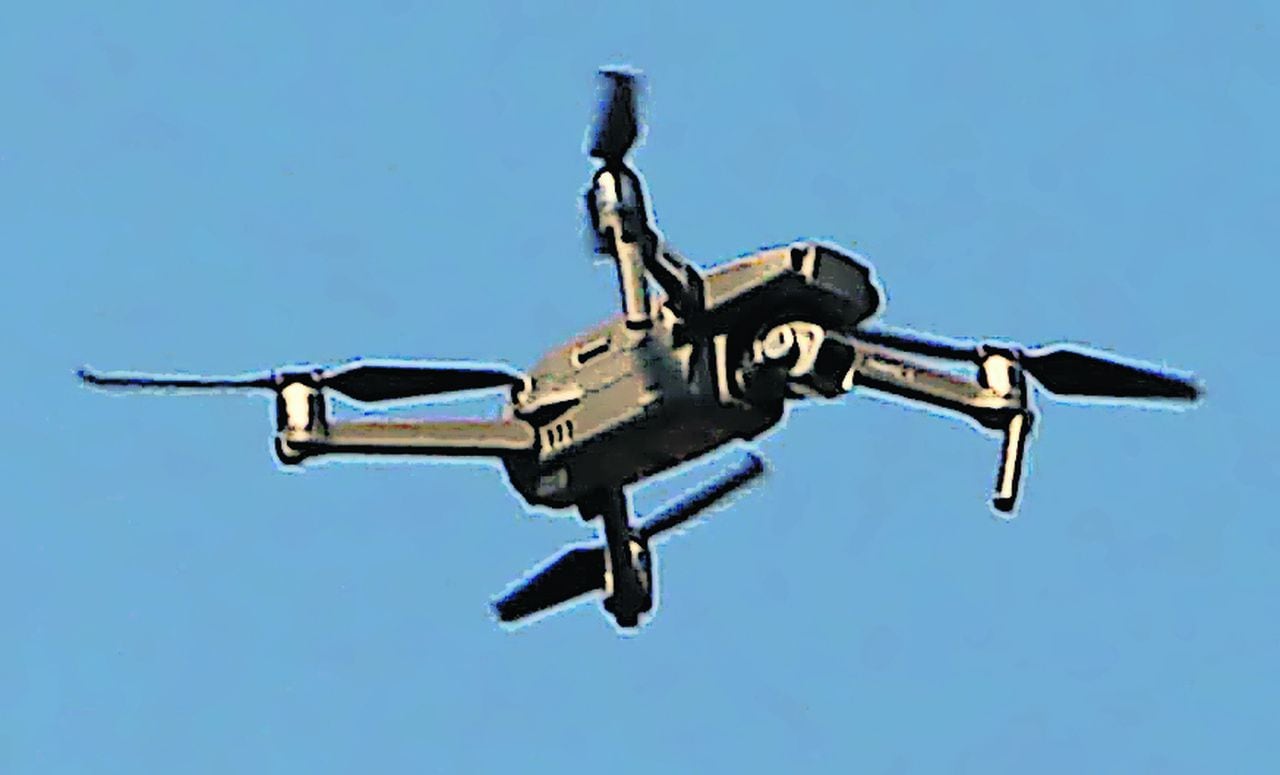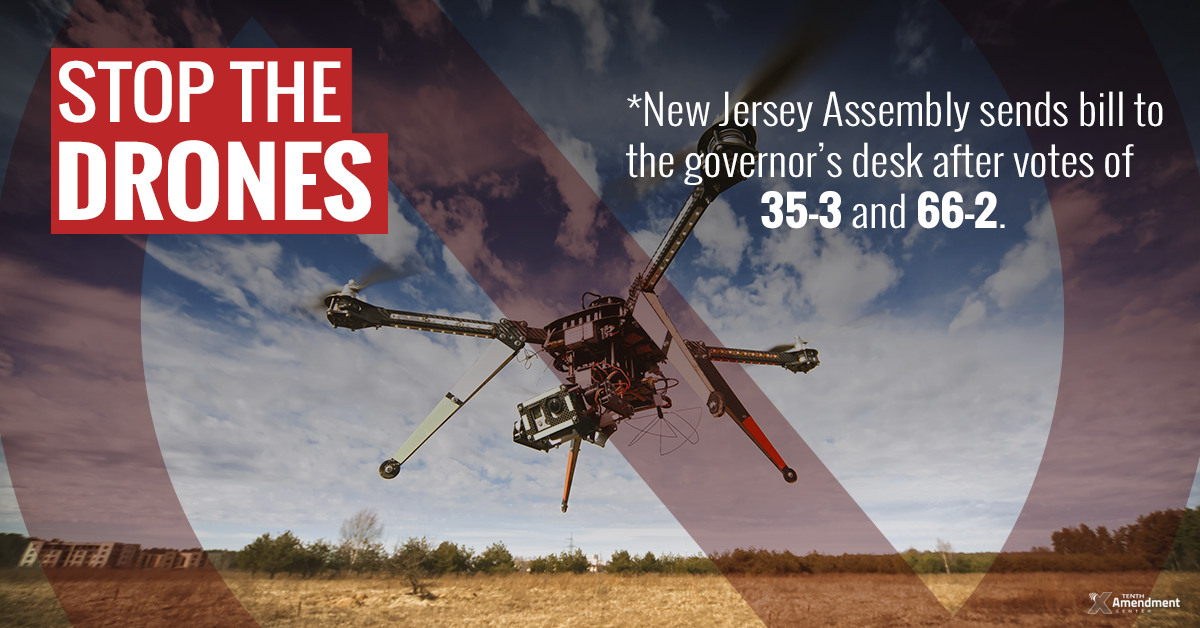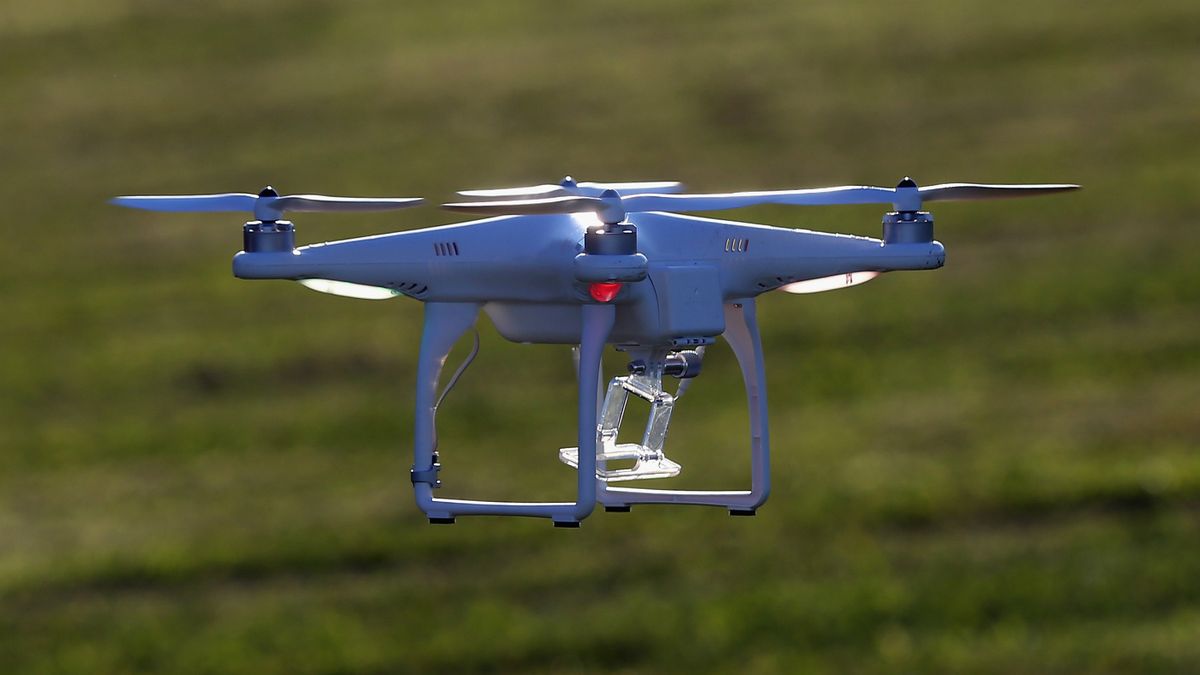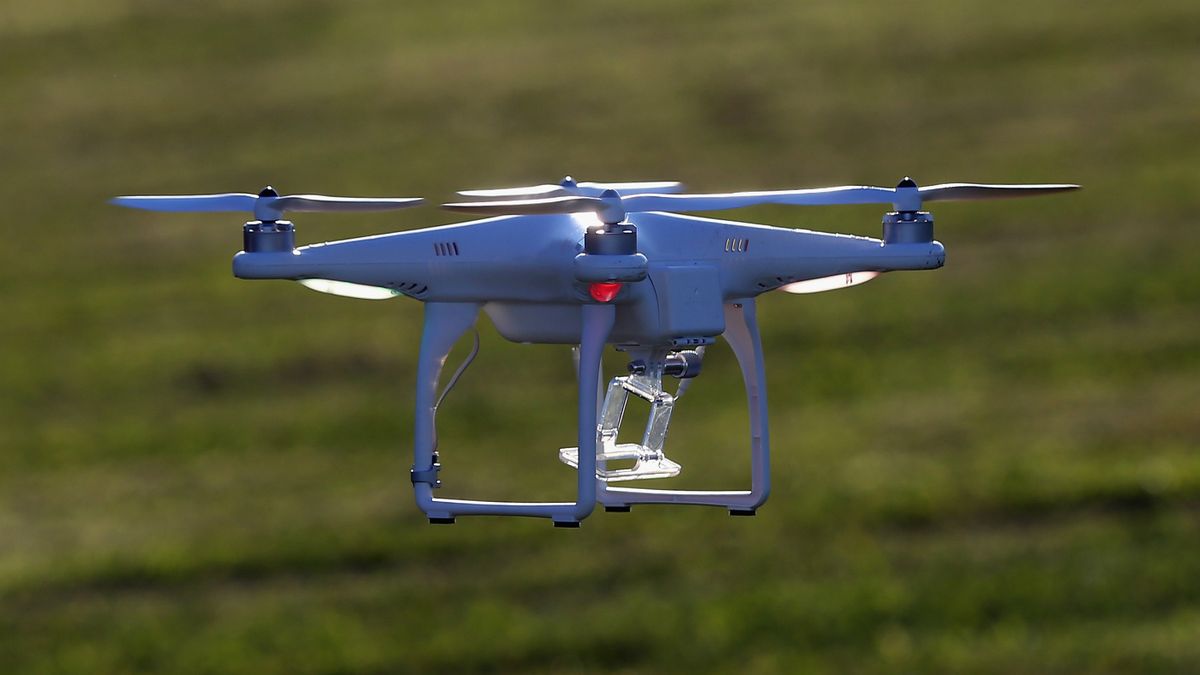Drones Over New Jersey Solved: This comprehensive analysis delves into the evolving landscape of drone regulations, incidents, and technological advancements within the state. We examine past drone-related issues, exploring their resolutions and the subsequent impact on New Jersey’s legal framework and public perception. The discussion also forecasts the future of drone technology in the state, considering both its potential benefits and challenges.
From examining current New Jersey drone laws and comparing them to neighboring states, to detailing resolved incidents and analyzing technological solutions for safety and privacy concerns, this exploration provides a holistic understanding of the drone situation in New Jersey. We will look at public opinion on drone usage, exploring the differences between urban and rural attitudes, and ultimately, projecting the future role of drones in various sectors within the state.
Drone Regulations in New Jersey

New Jersey’s drone regulations, like those in many states, aim to balance the innovative potential of drone technology with public safety and privacy concerns. These regulations are primarily derived from federal FAA rules, but the state also has its own specific laws and ordinances.
Current Drone Laws and Regulations in New Jersey
New Jersey largely adheres to the Federal Aviation Administration (FAA) regulations for drone operation. This includes requirements for registration, licensing for commercial operations, and restrictions on flight near airports and sensitive areas. Specific state laws may address issues such as privacy violations and unauthorized surveillance, often aligning with broader state laws concerning these matters. Operators must be aware of airspace restrictions around airports and other critical infrastructure.
Flight limitations concerning populated areas and nighttime flights are also important considerations.
Comparison of New Jersey Drone Laws with Neighboring States
A comparison of New Jersey’s drone laws with those of neighboring states like New York, Pennsylvania, and Delaware reveals a general consistency in adhering to federal FAA guidelines. However, minor variations might exist in specific state-level regulations regarding permits, licensing requirements for certain commercial applications, or penalties for violations. For instance, one state might have a more streamlined permitting process for certain types of drone operations than another.
Detailed research into each state’s specific regulations is recommended for precise comparison.
Potential Legal Challenges Faced by Drone Operators in New Jersey
Drone operators in New Jersey face potential legal challenges related to airspace violations, privacy infringements, and operating without proper authorization. Failing to register a drone, operating beyond visual line of sight (BVLOS) without appropriate waivers, or using drones for unauthorized surveillance can lead to significant penalties. Understanding and adhering to all applicable federal and state regulations is crucial to mitigate these risks.
Staying updated on any changes to these regulations is also essential for continued compliance.
Simplified Flowchart for Drone Flight Permitting in New Jersey
A simplified flowchart for obtaining a drone flight permit in New Jersey would generally follow the FAA’s process. This involves determining if the flight requires FAA authorization (based on factors like weight, purpose, and location), completing the necessary application, and obtaining the appropriate authorization before flight. The flowchart would visually represent the steps involved in this process, including checks for airspace restrictions, required documentation, and the potential need for additional permits or waivers based on the specific flight parameters.
Solved Incidents Involving Drones in New Jersey
Several incidents involving drones in New Jersey have been resolved, highlighting the importance of clear regulations and responsible drone operation. These incidents have involved a range of issues, from near misses with aircraft to privacy violations and illegal activities.
Chronological List of Resolved Drone Incidents and Resolutions
While specific details of resolved drone incidents in New Jersey are often not publicly available due to privacy or ongoing investigations, a hypothetical example might include an incident where a drone was used to illegally photograph a private property. The resolution could involve a warning, fine, or even legal action depending on the severity of the violation. Another example could involve a drone malfunction causing a near-miss with a plane, resulting in a thorough investigation and changes in flight procedures.
| Incident Date | Location | Problem Type | Resolution |
|---|---|---|---|
| October 26, 2023 (Hypothetical) | Princeton, NJ | Privacy Violation | Warning issued to operator |
| March 15, 2024 (Hypothetical) | Newark Airport vicinity | Airspace Violation | Fine and mandatory safety training |
| June 8, 2024 (Hypothetical) | Atlantic City | Unauthorized Commercial Use | Cease and desist order |
| September 2, 2024 (Hypothetical) | Trenton | Drone Malfunction | Investigation and improved safety protocols recommended |
Technological Solutions for Drone-Related Problems in New Jersey
Technological advancements are playing a crucial role in addressing safety and privacy concerns associated with drone use. These advancements are improving the overall security and responsible use of drones.
Advancements in Drone Technology Addressing Safety and Privacy
Several technological solutions are improving drone safety and privacy. These include advanced obstacle avoidance systems, improved GPS accuracy for precise flight control, and encrypted communication channels to prevent unauthorized access and data breaches. Real-time monitoring and control systems are also enhancing situational awareness and the ability to respond quickly to potential problems. The use of AI-powered systems for drone detection and identification is also gaining traction.
Geofencing Technology to Prevent Unauthorized Flights
Geofencing technology utilizes GPS and other location-based systems to create virtual boundaries around sensitive areas. Drones programmed with geofencing capabilities will automatically avoid entering these restricted zones, preventing unauthorized flights over airports, prisons, or other critical infrastructure. This technology significantly reduces the risk of airspace violations and enhances overall safety.
Methods to Track and Identify Drones Involved in Illegal Activities

Law enforcement agencies are increasingly utilizing technologies such as radar systems, radio frequency detection, and advanced image recognition software to track and identify drones involved in illegal activities. These systems can pinpoint the drone’s location, record its flight path, and even capture images or videos of the operator. This information is critical for investigations and prosecutions.
Innovative Technologies Improving Drone Safety and Security
- Advanced Obstacle Avoidance Systems
- Beyond Visual Line of Sight (BVLOS) Technologies
- Drone Detection and Tracking Systems
- Secure Data Encryption and Transmission
- AI-Powered Drone Traffic Management Systems
Public Perception and Drone Use in New Jersey
Public perception of drones in New Jersey, as in other areas, is a complex issue influenced by factors such as awareness of the technology, perceived risks, and potential benefits. Understanding these perceptions is crucial for fostering responsible drone use and addressing public concerns.
Public Attitudes Towards Drone Use in New Jersey
Public opinion surveys and news reports suggest a mixed public perception of drones in New Jersey. While many recognize the potential benefits of drones in various sectors, concerns about privacy violations, safety risks, and potential misuse remain. These concerns are often more pronounced in densely populated urban areas than in rural settings. Further research is needed to obtain a more precise understanding of the nuances in public opinion.
Comparison of Public Perception in Urban vs. Rural Areas
Public perception of drones tends to differ between urban and rural areas of New Jersey. In urban areas, concerns about privacy violations and noise pollution may be more prevalent due to higher population density. In rural areas, concerns might center around potential impacts on wildlife or agricultural activities. These differing perspectives highlight the need for tailored public awareness campaigns targeting specific concerns within each environment.
The recent increase in unauthorized drone activity over New Jersey prompted a swift response from authorities. Understanding the complexities of airspace management and advanced drone technology is crucial, and companies like archer aviation , a leader in electric vertical takeoff and landing (eVTOL) aircraft, are at the forefront of innovation in this field. This technological advancement ultimately aids in developing better solutions for managing drone traffic and ensuring safer skies over New Jersey.
Improving Understanding and Acceptance of Drone Technology
Public awareness campaigns are crucial for improving understanding and acceptance of drone technology. These campaigns should highlight the benefits of drones while addressing safety and privacy concerns. Clear and concise information about drone regulations, responsible operation, and the technology’s positive applications can help dispel misinformation and build public trust. Effective communication strategies are crucial for achieving this.
Hypothetical Public Service Announcement

A hypothetical public service announcement (PSA) promoting responsible drone use in New Jersey could feature a visually appealing animation showing a drone performing beneficial tasks, such as inspecting bridges or delivering medical supplies. The voiceover would emphasize responsible operation, adherence to regulations, and the importance of respecting privacy. The PSA would conclude with a website or phone number providing more information on drone safety and regulations.
The visual elements would be bright and engaging, with clear text and simple graphics.
Future of Drones in New Jersey
The future of drones in New Jersey holds significant potential across various sectors, but also presents challenges that need to be proactively addressed for widespread adoption.
Potential Applications of Drones in New Jersey (Next 5-10 Years)
In the next 5-10 years, drones are expected to play a significant role in various sectors in New Jersey. Infrastructure inspection (bridges, power lines), emergency response (search and rescue, disaster relief), delivery services (medical supplies, packages), and precision agriculture are prime examples. The growth of the drone industry is projected to create jobs and stimulate economic activity.
Challenges to Widespread Adoption of Drones
Challenges to widespread drone adoption include regulatory hurdles, concerns about airspace safety, and public acceptance. Addressing these challenges requires a collaborative effort between government agencies, drone operators, and the public to ensure safe and responsible drone integration into the airspace.
Potential Solutions to Overcome Challenges, Drones over new jersey solved
Solutions include developing clear and consistent regulations, investing in advanced air traffic management systems, and implementing robust safety protocols. Public awareness campaigns are also crucial for fostering trust and acceptance. Collaboration among stakeholders is essential to facilitate innovation while mitigating potential risks.
Economic Impact of Drone Technology on New Jersey
The economic impact of drone technology on New Jersey is expected to be substantial. New jobs will be created in manufacturing, operation, maintenance, and related industries. Increased efficiency and cost savings in various sectors will also contribute to economic growth. For example, drones can significantly reduce the cost and time associated with infrastructure inspections, leading to substantial economic benefits.
The recent increase in unauthorized drone activity over New Jersey has prompted a review of airspace management strategies. Understanding efficient payload capacity is crucial, and examining data like that found on sites such as remington drone loads can help inform better regulations. This information is key to developing solutions for preventing future drone-related incidents over New Jersey.
The integration of drones into New Jersey’s airspace is undeniably complex, presenting both opportunities and challenges. While the resolved incidents detailed here demonstrate progress in establishing clear regulations and technological solutions, ongoing vigilance and proactive measures are crucial. Looking ahead, the responsible and innovative application of drone technology holds immense potential to benefit various sectors in New Jersey, from infrastructure monitoring to emergency response, provided that robust regulations and public acceptance continue to evolve in tandem.
Questions Often Asked: Drones Over New Jersey Solved
What are the penalties for violating New Jersey drone laws?
Penalties vary depending on the violation, ranging from fines to potential criminal charges.
Can I fly a drone over private property in New Jersey?
Generally, no, unless you have explicit permission from the property owner. This is a matter of privacy and trespass laws.
Where can I find more information on obtaining permits for drone flights in New Jersey?
The New Jersey State Police website and the Federal Aviation Administration (FAA) website are good starting points.
Are there specific areas in New Jersey where drone flight is completely prohibited?
Yes, areas near airports, sensitive government facilities, and certain wildlife preserves often have restricted airspace.
